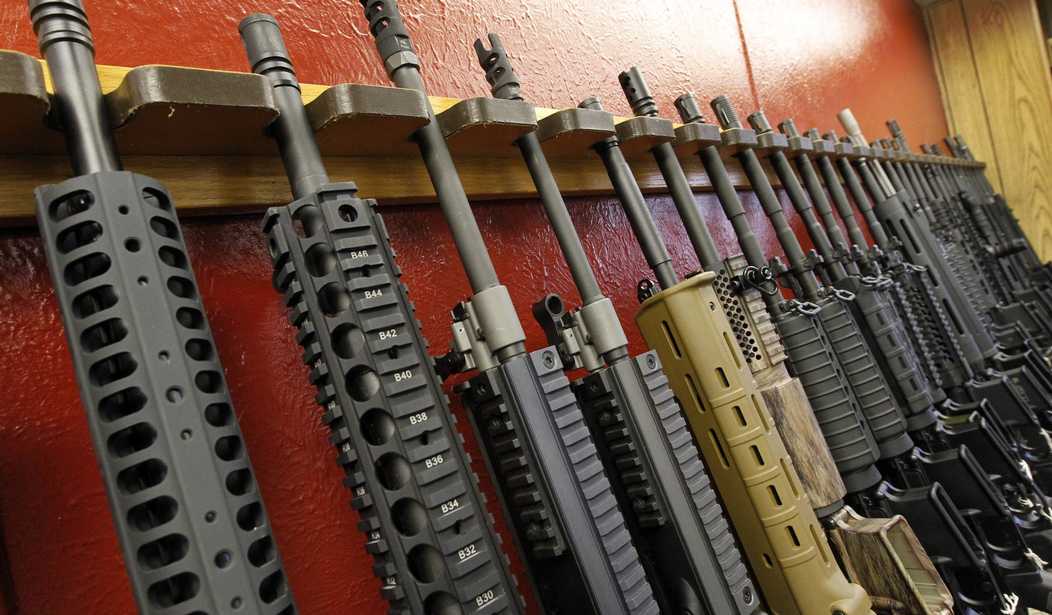The debate over gun control rages on, despite the decades prior where everything was discussed endlessly. It’s also not likely to go anywhere anytime soon, either.
There are those who are dedicated to passing gun control no matter what, and many of those like to wear the trappings of being gun owners so as to make their solutions sound reasonable, particularly when they’re stripped down to one- or two-sentence concepts.
A prime example comes from 97Percent, where supposed experts say come simple solutions could significantly reduce violent crime.
The first one:
The first policy stems from the idea that people with a history of violence should not have access to a gun. Research shows that people most likely to commit firearm violence are people who have a history of violence. The problem, Siegel points out, is that under current federal law, unless someone commits a felony offense, they are not prohibited from having a gun in some states.
In those states, for example, someone could commit assault, stalking, and/or threaten violence—all of which can be misdemeanors, not felonies—and even if they are found guilty, they can continue to own a gun. Some states have closed this loophole, but most have not. If this proposed policy package were adopted in every state, then if someone committed a violent crime, whether a felony or misdemeanor, they could not have a gun, no matter where they live.
Now, this looks simple to most folks. “Sure, why wouldn’t you restrict violent people from buying guns?” they might ask.
However, let’s realize that a misdemeanor is something that can be as simple as a fight at school when you’re 17 or 18. That’s something many of us have found ourselves embroiled in back in the day, but if this were to become law, such a simple lapse could bar you from owning guns for however long, up to and including a lifetime prohibition.
Also, the term “assault” includes a lot of things people don’t realize are assault. Grabbing someone’s arm as they try to walk away from you–not a cool thing to do, but a lot of people do it without meaning any harm–counts and could get you a prohibition.
Threats of violence could be a serious warning sign or it could be someone talking smack to someone who reports it.
See, even within these charges, there is a wide variance in the potential threat level someone poses. That’s an issue because we’re talking about a constitutionally protected right here, and this idea of expanding the list of prohibited people should be more than just a sound bite solution.
But that’s not the only problem being pushed with simple-sounding ideas.
For example, 97Percent is also pushing gun permitting, but they’re trying to sell it as if it’s really good for gun owners.
A state gun permitting system has multiple benefits for gun owners, Siegel says. “Say you live in a rural area, your brother comes to visit for the weekend, and you decide to go hunting. Your brother has a gun permit but did not bring his gun, so you loan him one of yours. In some states, doing that is a felony, and you could go to jail. Under this system, you would simply verify his valid permit and you’re all set.”
The state permits also would benefit gun owners when it comes to purchasing a gun from a private seller versus a retailer. For example, a gun collector posts an ad to sell a piece from their collection, and someone wants to buy the gun. In states with universal background checks, private sellers must conduct a background check before selling the gun.
Of course, the problem with the first paragraph’s anecdote is it shouldn’t be illegal to loan your brother a firearm for the weekend. We shouldn’t create another barrier in order to remove the potential problems here.
And while this piece tries to make gun permitting sound great, they’re only presenting a single side of things.
For example, let’s take a look at the reality of gun permits. For example, there could be delays in getting permits issued. States could institute various requirements prior to someone being able to get them, as is happening in Oregon, requirements that wouldn’t be tolerated for any other right and that also make it less likely the poorer folks in the state can exercise that right at all.
Plus, a gun permitting system is really just a backdoor gun registration program. Sure, the gun itself isn’t registered, but the government knows who lawfully has guns just the same. If they want to round them up, they have a handy database from which to start with.
And you can imagine how that sits with many gun owners.
Of course, in trying to frame this as a good thing, the authors bring up permit reciprocity–a term many gun owners are familiar with. The problem is these aren’t concealed carry permits, but gun ownership permits, and there’s currently no real reciprocity in place. They’re presenting a hypothetical next step as a benefit to placing a restriction now.
If every state had a gun permit scheme in place, there’s no guarantee that anyone would actually complete a reciprocity agreement. Of the handful of states that have permitting requirements, absolutely no one has done it so far. Why is that? If this reciprocity is such a foregone conclusion, then just how come it hasn’t already happened yet?
These suggestions are tucked between things we’ve already discussed previously; ideas like red flag laws and universal background checks.
They’re also supposedly backed up by research showing a huge reduction in violent crime if we do these things. Then again, we know about how trustworthy gun research actually is, now don’t we?








